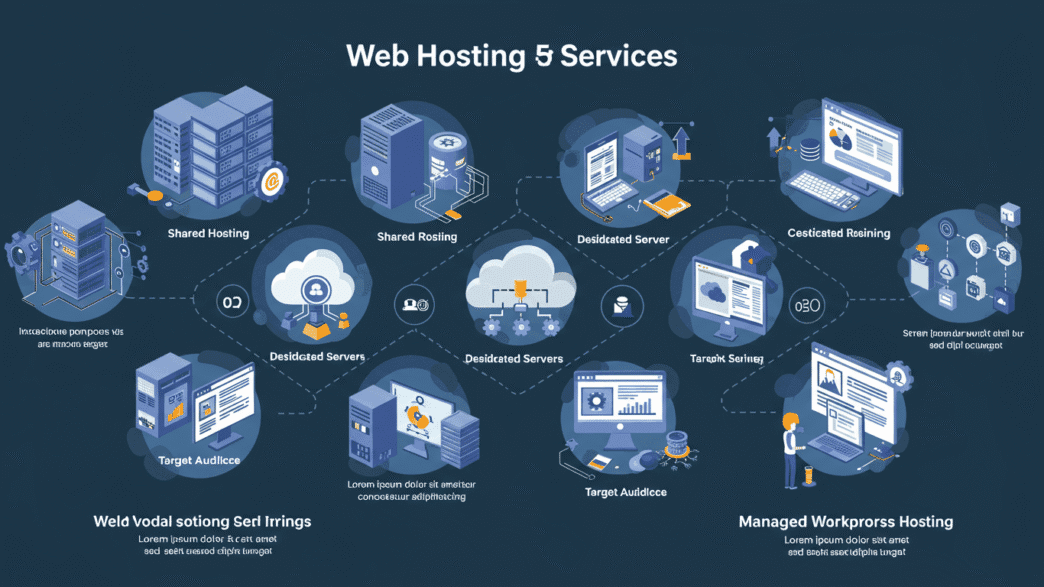In the ever-expanding realm of the Internet, websites play a pivotal role in disseminating information worldwide. Behind every accessible website lies the crucial foundation of web hosting, a facet influenced by various factors. Today, we’ll delve into the intricacies of shared hosting, VPS hosting, dedicated servers, and cloud hosting.
Table of Contents
Unveiling Web Hosting Services
To comprehend the nuances of hosting, envision it as the process of placing your website files on a server for Internet accessibility. Beyond this, many hosting providers extend additional services such as malware scanning, backups, server management, and support.
Let’s embark on a journey through the diverse landscape of web hosting packages available in today’s market.
Shared Hosting
Affordability defines shared hosting, making it an excellent choice for beginners. This budget-friendly option involves placing multiple users on a single server, sometimes exceeding 1,000 users. While cost-effective, shared hosting may not suit larger websites with substantial traffic. It is ideal for smaller websites, test environments, or scenarios with tight budgets.
VPS Hosting
Virtual Private Server (VPS) hosting strikes a balance between shared and dedicated hosting. Mimicking a dedicated server in a shared environment, VPS servers offer configurability and scalability. This flexibility appeals to users anticipating increased resource needs. VPS hosting allows a single physical server to run multiple virtualized operating systems, providing dedicated server benefits at a lower cost.
Dedicated Server Hosting
We recommend dedicated server hosting for websites surpassing 100k monthly visits. Here, clients lease an entire server dedicated solely to their needs, ensuring customization possibilities. Dedicated hosting promises near 100% uptime, prioritizes server monitoring, backup facilities, and offers enhanced security features like antivirus, firewalls, and biometric authentication. Continuous round-the-clock support is a hallmark of dedicated hosting providers.
Cloud Hosting
Diverging from traditional solutions, cloud hosting utilizes a cluster of servers forming a ‘cloud.’ This service draws computing power from a network of physical web servers, allowing users to pay for consumed resources only. Cloud hosting distinguishes itself with models like Infrastructure as a Service (IaaS) and Platform as a Service (PaaS). The former provides virtualized hardware resources, while the latter bundles software environments, expediting web application development and installation.
Concluding Thoughts
Selecting the right hosting package can be daunting. It’s crucial to evaluate your specific needs before choosing from shared, VPS, dedicated, or cloud hosting. Tailoring your choice to business requirements ensures a seamless online presence. Best of luck!














